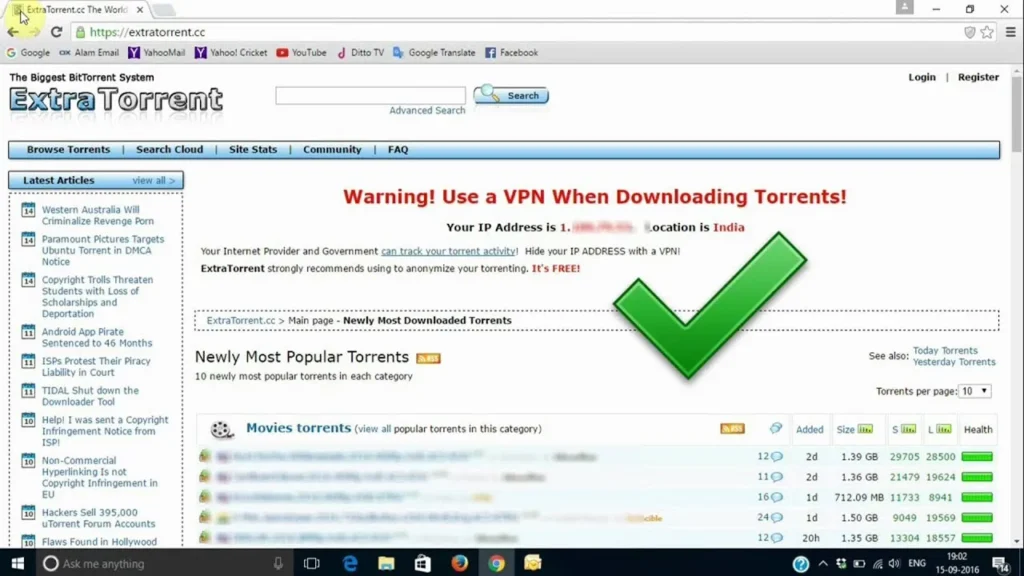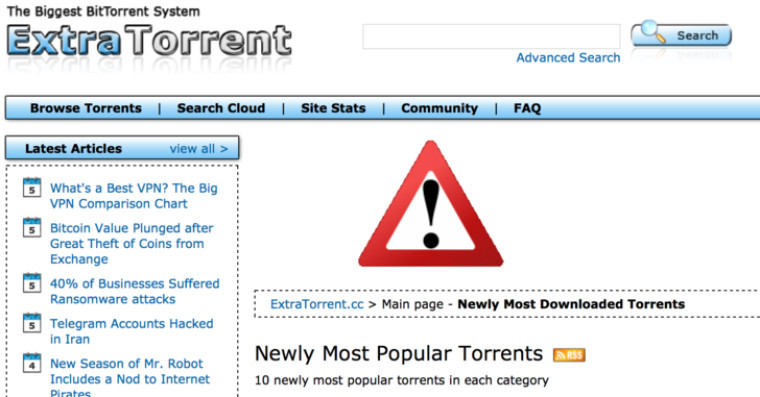Introduction
In the digital landscape, extratorrents were a prominent name in the realm of torrenting platforms. It offered a vast array of digital content, ranging from movies to software, attracting millions of users globally. However, its sudden disappearance left many wondering about its history, the reasons behind its shutdown, and the subsequent impact on the torrenting community.
History of Extratorrent
Extratorrent emerged in the mid-2000s as one of the leading torrent indexing websites. With a user-friendly interface and a diverse selection of content, it quickly gained popularity among torrent enthusiasts. Over the years, it grew into one of the most visited torrent sites, rivaling even the likes of The Pirate Bay.
Reasons for Extratorrent Shutdown
Despite its popularity, Extratorrent faced relentless legal pressure from copyright holders and anti-piracy organizations. This led to numerous legal battles and domain seizures. Ultimately, in [year], Extratorrent announced its permanent shutdown, citing mounting legal challenges and increasing pressure from authorities.
Impact of Extratorrent Shutdown on Torrenting Community
The abrupt closure of Extratorrent sent shockwaves throughout the torrenting community. Millions of users were left without access to their favorite content, forcing them to seek alternative platforms. Additionally, it sparked discussions about the vulnerability of torrenting sites in the face of legal threats and the future of online piracy.
Alternatives to Extratorrent
Following the shutdown of Extratorrent, several alternative torrenting platforms emerged to fill the void. Websites like [Alternatives] gained traction among users seeking a similar experience to Extratorrent. However, the closure of such a major player in the torrenting landscape underscored the ongoing battle between copyright holders and online piracy advocates.
Legal Implications of Torrenting
Torrenting has long been a contentious issue in terms of legality. While sharing and downloading copyrighted material without authorization is illegal in many jurisdictions, the decentralized nature of torrenting makes enforcement challenging. Nevertheless, users should be aware of the potential legal consequences of engaging in torrenting activities.
Safety Concerns with Torrenting
In addition to legal risks, torrenting poses various safety concerns for users. Malware-infected files, phishing scams, and identity theft are just a few of the potential hazards associated with downloading torrents from unverified sources. Therefore, exercising caution and utilizing security measures are paramount when engaging in torrenting.
How to Safely Torrent
Despite the risks, it is possible to torrent safely by following best practices. This includes using reputable torrent clients, verifying file integrity with checksums, and avoiding suspicious websites and torrents. Additionally, employing virtual private networks (VPNs) can help protect user privacy and mitigate the risk of legal repercussions.
Future of Torrenting

The closure of Extratorrent and the ongoing legal crackdown on torrenting sites raise questions about the future of the practice. While torrenting will likely remain a popular method of sharing and acquiring digital content, it may undergo significant changes in response to increased scrutiny and evolving technology.
Torrenting, despite facing challenges, is expected to continue evolving alongside advancements in technology and changing legal landscapes. The development of decentralized protocols and blockchain-based solutions may offer new avenues for secure and censorship-resistant file sharing. Additionally, initiatives promoting legal access to content through subscription services and decentralized distribution platforms could reshape the torrenting ecosystem.
However, navigating the future of torrenting will require collaboration between stakeholders, including content creators, distributors, and regulatory bodies. Balancing the protection of intellectual property rights with ensuring access to information and cultural exchange remains a complex and ongoing endeavor.
As users adapt to these changes, education and awareness about responsible torrenting practices will be essential. Understanding the legal and ethical implications of torrenting, along with adopting safety measures, will empower users to engage in file sharing responsibly and mitigate potential risks.
Conclusion
Extratorrent’s demise marks a significant chapter in the history of online piracy and torrenting. Its closure serves as a sobering reminder of the legal and ethical complexities surrounding digital copyright infringement. As the torrenting landscape continues to evolve, users must remain vigilant and informed to navigate safely in this digital age.
Unique FAQs
- Is torrenting illegal?
- Torrenting itself is not inherently illegal. However, downloading or sharing copyrighted material without authorization is illegal in many jurisdictions.
- What are the risks of torrenting?
- Torrenting poses various risks, including exposure to malware, phishing scams, and legal consequences for copyright infringement.
- Are there legal alternatives to torrenting?
- Yes, there are legal alternatives to torrenting, such as streaming services, digital rentals, and purchasing content through legitimate channels.
- How can I protect myself while torrenting?
- To protect yourself while torrenting, use reputable torrent clients, avoid suspicious websites, verify file integrity, and consider using a VPN for added privacy.
- What is the future of torrenting?
- The future of torrenting remains uncertain, as it faces increasing legal scrutiny and technological advancements. However, it is likely to persist in some form despite ongoing challenges.
- Can I torrent without a VPN?
- While it is possible to torrent without a VPN, using one adds an extra layer of privacy and security by encrypting your internet connection and hiding your IP address from prying eyes.
- What are some legal uses of torrents?
- Torrents can be used for legal purposes such as distributing open-source software, public domain content, and files that are shared with the consent of the copyright holder.
- Are there risks associated with using torrent clients?
- Like any software, torrent clients may pose risks if downloaded from unreliable sources. It’s essential to use reputable clients and keep them updated to minimize security vulnerabilities.
- Can I be tracked while torrenting?
- While it is technically possible for your online activity to be tracked while torrenting, using a VPN and practicing safe torrenting habits can significantly reduce the likelihood of detection.
- How can I support content creators while torrenting?
- If you enjoy a piece of content, consider supporting the creators by purchasing their work through official channels or donating directly to them. This helps ensure that creators are fairly compensated for their efforts.


Leave a Reply